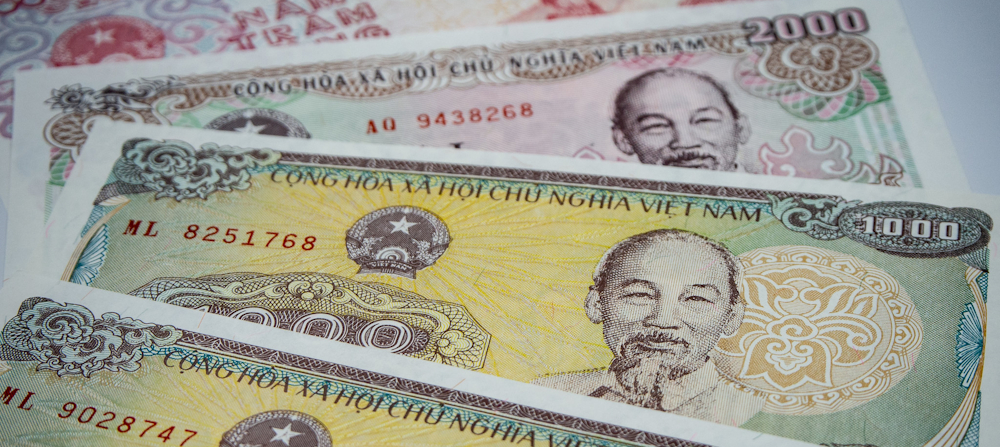Managing your banking and finances in Vietnam is relatively straightforward, with a modern banking infrastructure that boasts a 98 percent digital transaction rate. You’ll spot ATMs across Vietnamese cities and enjoy internet banking as standard with all accounts.
Bank staff in Vietnam are friendly and ready to help you set up an account. Many expats opt to maintain an account with one of the numerous international banks that operate in Vietnam, especially if they already bank with them back home.
Money in Vietnam

When handling money in Vietnam, you’ll need to know that the official currency is the Vietnamese Dong (VND). It comes in the following denominations:
- Notes: VND 10,000, VND 20,000, VND 50,000, VND 100,000, VND 200,000 and VND 500,000
- Coins: VND 200, VND 500, VND 1,000, VND 2,000 and VND 5,000
US Dollars (USD) are accepted in major cities and tourist hotspots, and many prices are quoted in dollars rather than dong.
Banking in Vietnam
The banking system in Vietnam offers modern and efficient services for both locals and expats. Most banks employ at least one English-speaking representative, with more multilingual staff available in expat-heavy areas.
Several international banks operate in Vietnamese cities, including HSBC, Citibank, Shinhan Bank, Standard Chartered and ANZ. Many expats choose these banks if they already hold accounts with them in their home country. The local Vietnamese banks BIDV, Vietcombank and Techcombank rank as popular choices among the expat community.
Banks across Vietnam offer various banking packages, so it’s worth your time to research which options best suit your needs. Banking hours run Monday to Friday from 8am to 11am and from 1pm to 5pm, although specific times may vary between banks.
Opening a bank account
Opening a bank account in Vietnam requires your passport, a copy of your employment contract, and an initial deposit – the exact amount differs between banks. Some institutions request a letter from your landlord confirming you’re legally renting property in Vietnam. Most banks simply need a valid contact address and your work address.
After setting up your account, you can activate internet and mobile banking services, a recommended step for managing your finances without having to visit branches in person.
Credit cards and ATMs
ATMs are plentiful in Vietnamese cities but scarce in rural areas and smaller towns. When travelling to off-the-beaten-track locations, carry enough cash to cover your expenses.
Vietnam remains largely a cash-based economy, so keep cash on hand for most transactions, even as digital payments are gaining popularity in urban centres. When using ATMs, expect fees between 30,000 VND and 55,000 VND per transaction. For fee-free withdrawals, seek out TPBank and VPBank ATMs, which cater well to international cardholders.
Taxes in Vietnam
Tax regulations in Vietnam classify you as a tax resident if you stay in the country for 183 days (six months) or more during a 12-month period, hold permanent residency, or rent a home long-term. This status makes you liable for progressive income tax rates based on your earnings.
For tax residents, the Vietnamese tax system applies progressive rates that start at 5 percent for lower brackets and climb to 35 percent for the highest income levels. These rates apply to your worldwide income once you qualify as a resident. Those who don’t meet these residency criteria pay a flat 20 percent tax rate on all Vietnam-sourced income.
Given the complexity of Vietnam’s tax system, most expats benefit from consulting with a qualified tax specialist.
